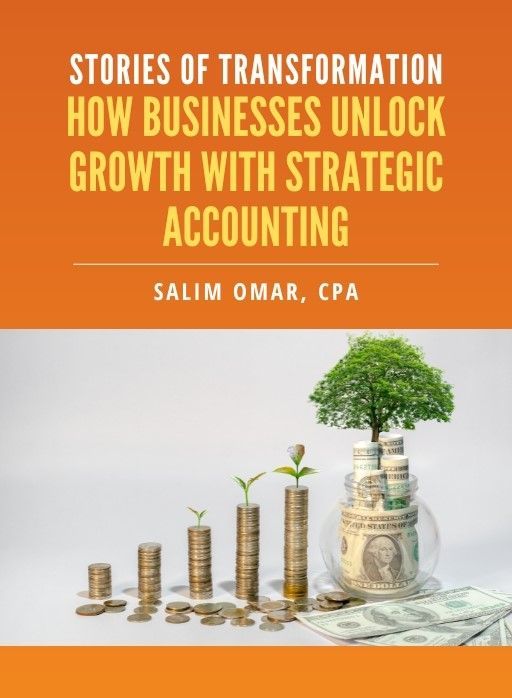Business Structure for eCommerce: LLC or S-Corp?

Ecommerce business structure, LLC vs. S-Corp, Shopify taxes, Amazon seller entity type, Etsy LLC, ecommerce tax savings, online business legal structure, best entity for ecommerce, ecommerce compliance, ecommerce CPA support—these aren’t just trending search terms. They’re the building blocks of your financial success online.
Whether you're selling handmade goods on Etsy, dropshipping through Shopify, or managing inventory through Amazon FBA, your legal structure matters more than you might think. Not just for legal protection—but for serious tax savings, operational clarity, and long-term growth.
Straight Talk CPAs regularly works with established ecommerce brands—multi-channel sellers pulling six and seven figures annually. We’ve seen firsthand how the wrong structure can eat into profits, and how the right one can unlock new cash flow. So if you're stuck between forming an LLC or electing S-Corp status, you're in the right place.
Let’s Start with the Basics
LLC (Limited Liability Company)
A Limited Liability Company is a flexible, low-maintenance business entity. It’s popular with ecommerce sellers because it’s easy to set up, doesn’t require complex formalities, and still gives you personal liability protection.
By default, a single-member LLC is taxed as a sole proprietorship, and a multi-member LLC as a partnership. That means business income passes through to your personal tax return—no separate corporate taxes.
Pros:
- Simple to maintain
- Great for new or growing ecommerce brands
- Liability protection
- Flexible management structure
- Eligible to elect S-Corp status later
Cons:
- All net profit is subject to self-employment tax (15.3%)
- Limited options for tax planning
- Not ideal for scaling past $50K–$80K profit
S-Corporation (S-Corp Election)
An S-Corp isn’t a business structure itself—it’s a tax election you make as an LLC (or corporation). Once elected, your business income is split between owner wages (subject to payroll taxes) and owner distributions (not subject to self-employment tax). That’s where the real tax savings come in.
Pros:
- Huge self-employment tax savings
- Professional business perception (helpful for vendors and investors)
- Owners can pay themselves a reasonable salary + take additional income as distributions
- Still offers liability protection if it’s an LLC
Cons:
- Requires payroll setup
- More complex compliance (quarterly reports, W-2 filings, bookkeeping)
- You must pay yourself a "reasonable salary" (can’t just take all profit as distributions)
- Not ideal for businesses with low or inconsistent profits
Tax Comparison Example
Let’s look at an established Shopify seller pulling in $150,000 net income after expenses.
As an LLC (default taxation):
- Full $150,000 is subject to self-employment tax
- Estimated SE tax = $22,950
- Federal income tax layered on top
As an LLC with S-Corp election:
- Reasonable salary set at $60,000
- Payroll taxes on salary = $9,180
- Remaining $90,000 is taken as distribution (not subject to SE tax)
- Total SE-related tax = $9,180
- Tax savings = Over $13,000 annually
And this doesn’t even include the potential for retirement plan contributions or health insurance deductions, which are easier to implement under an S-Corp setup.
What About Amazon, Etsy, and Shopify Sellers Specifically?
Amazon FBA Sellers
Amazon sellers with warehousing, automation, and high sales volume often benefit from an S-Corp due to the profit potential. We’ve helped Amazon sellers save tens of thousands annually just by making the switch and managing payroll the right way.
Etsy Sellers
If you’re still side hustling with under $30K profit, LLC default taxation is usually fine. Once your handmade business grows into something more predictable—especially with repeat customers and seasonal spikes—S-Corp makes more sense.
Shopify Store Owners
Shopify sellers, especially those using dropshipping or digital products, often scale fast. Once you're turning solid profit and outsourcing fulfillment, an S-Corp can boost margins significantly.
Compliance Checklist for S-Corp
If you go the S-Corp route, make sure these boxes are checked:
- File IRS Form 2553 for S-Corp election
- Set up payroll and file quarterly payroll reports
- Pay yourself a reasonable salary
- Track owner distributions properly
- Keep clean, audit-ready books
- File an annual corporate return (Form 1120-S)
The good news? Straight Talk CPAs manages this entire process for ecommerce clients—so you're not stuck figuring it out on your own.
Still Not Sure? Ask These Questions:
- Are you making at least $60K in net profit consistently?
- Do you plan to grow or bring on team members?
- Are you okay with extra compliance if it saves you thousands?
- Do you want to invest in retirement or health plans tax-efficiently?
If you answered “yes” to most of these, it’s probably time to look at the S-Corp seriously.
Final Thoughts: Don’t Let Structure Be an Afterthought
Choosing the right business structure is one of the most important tax decisions ecommerce sellers can make. It’s not just about what’s easiest today—it’s about building a business that supports your financial future.
Straight Talk CPAs helps ecommerce brands—from growing Etsy shops to established multi-channel sellers—choose the structure that fits both now and later. Whether you’re just getting started or ready to restructure, the right advice can mean the difference between surviving and scaling.
Free eBook:
Stories of Transformation


Salim is a straight-talking CPA with 30+ years of entrepreneurial and accounting experience. His professional background includes experience as a former Chief Financial Officer and, for the last twenty-five years, as a serial 7-Figure entrepreneur.




